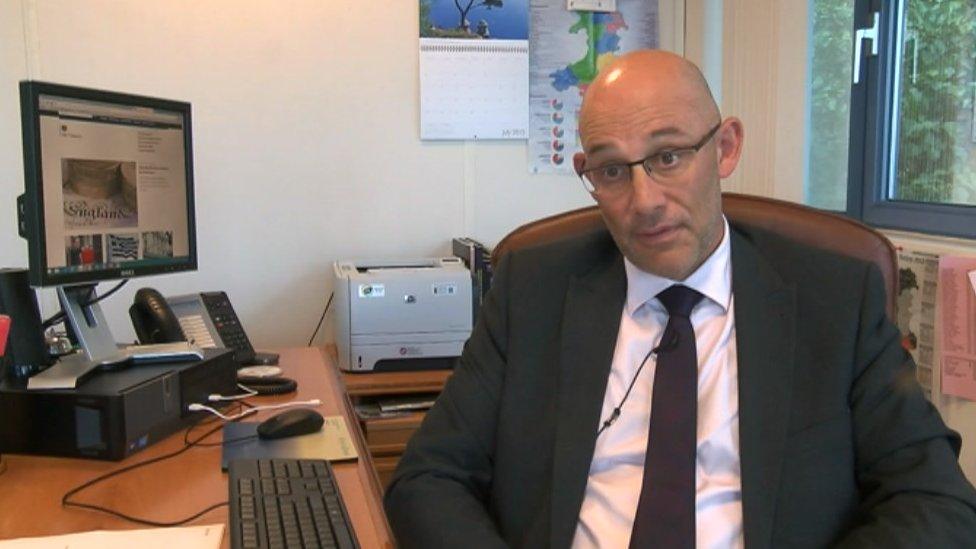Social care costs 'could force council mergers' in Wales
- Published

The rising cost of social care could force some councils to merge, according to the chief executive of the Welsh Local Government Association.
Steve Thomas said social care costs were expected to double over the next 15 years.
But he said overall council budgets would continue to decline.
Earlier this week the Welsh Government announced an extra £10m a year of new funding to help ensure the social care sector is sustainable.
Much of that money will help meet the extra costs associated with the introduction of the National Living Wage.
The Welsh Government, before the last assembly election, had wanted to merge councils, reducing the number from 22 to eight or nine.
Ministers now want councils to become more efficient by working together in regional partnerships.
Elections will be held in all of Wales' local authorities in May.
Mr Thomas told BBC Radio Wales' Sunday Supplement programme that social care was "the elephant in the room" which new councillors would have to deal with.

He said austerity "looms large" for councils and budgets would continue to decline, adding: "Authorities will struggle if the current prognosis in terms of finance continues.
"There are huge pressures, not least of all on health and social care. Social care costs will double in the next 15 years.
"Active consideration of either mergers of authorities or at least merger of services will be commonplace in the next period."
Mr Thomas would not predict which councils would consider merging, although some authorities had previously looked at such moves.
He said he sometimes wondered why people wanted to be a councillor.
"It's difficult, it's thankless," he said.
"People don't usually stand for office to cut services but that's what they've had to do over the past five years and that has been and is going to be their job."
Social services are the second largest service within local government - it supports more than 125,000 vulnerable people and has more than 70,000 employees.
- Published4 October 2016

- Published27 May 2016

- Published17 December 2015
